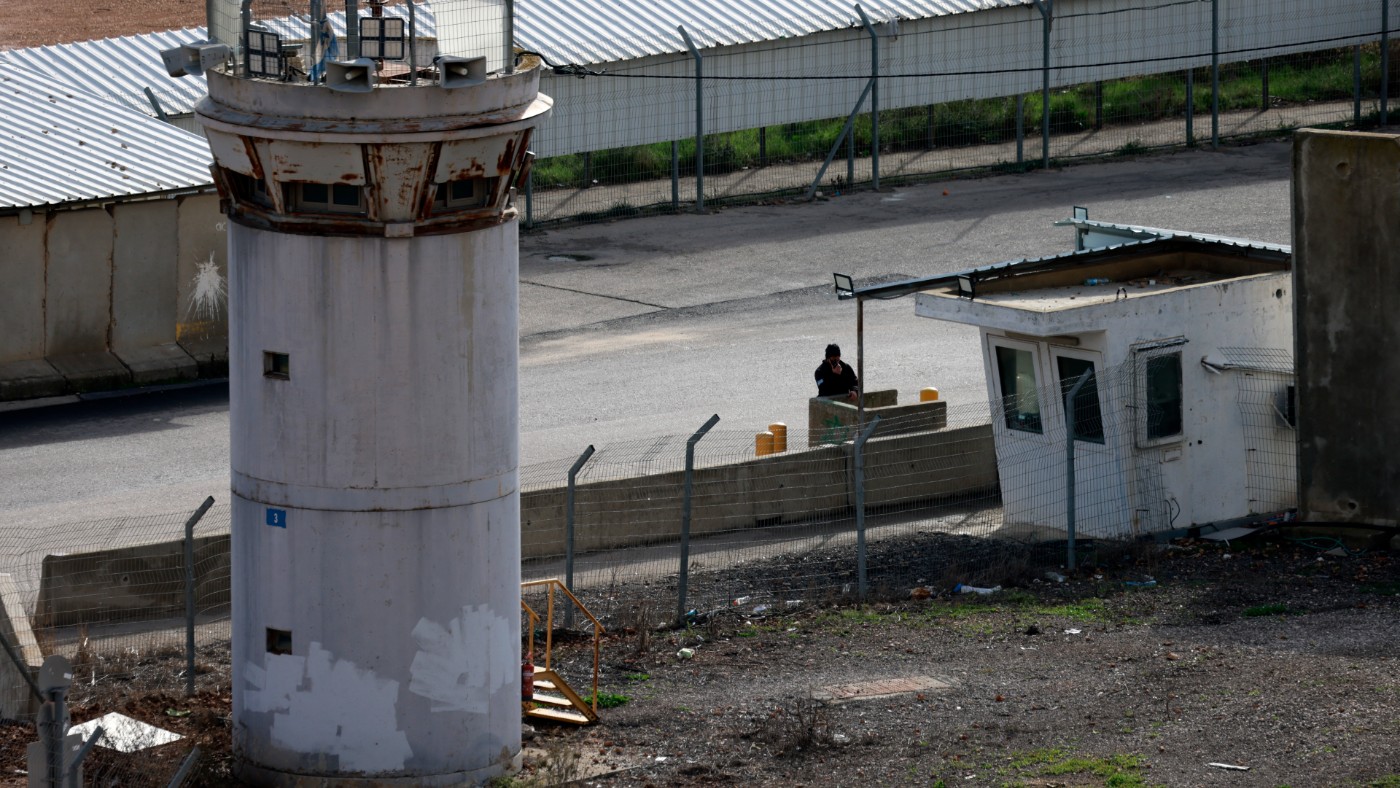Palestinian prisoner death toll rises as elderly man from Gaza dies in Israeli detention

An elderly man from Gaza has died in Israeli detention, bringing the overall death toll of Palestinian prisoners to at least 71 since 7 October 2023.
Though the Israeli army had notified two Palestinian prisoner advocacy groups, the Palestinian Prisoners' Club and the Commission of Detainees and Ex-Detainees Affairs, of his death in recent days, 70-year-old Hussein Abu Habel actually died on 10 January.
Forty-five of the 71 Palestinians known to have died in Israeli-run detention centres and prisons since the start of the war on Gaza were from Gaza and their identities were known.
In what has been described by the two prisoner advocacy groups as the "bloodiest phase in the history of the prisoner movement" and the "most severe" in detention conditions, the total number of identified Palestinian prisoners to have died since 1967 has risen to 308.
"The case of the martyr Abu Habel is added to the record of the Israeli system of brutality, which operates around the clock through a series of organised crimes to kill prisoners and detainees," the prisoner advocacy groups said in a statement.
New MEE newsletter: Jerusalem Dispatch
Sign up to get the latest insights and analysis on Israel-Palestine, alongside Turkey Unpacked and other MEE newsletters
"These crimes constitute another aspect of the ongoing genocide and an extension of it."
Torture, sexual assault, negiligence
Abu Habel, who was married and the father of 11 children, was arrested on 12 November.
The prisoner groups said they held Israel fully responsible for his death and demanded an international investigation into the deaths of Palestinian detainees.
They said that reports on detainees and the circumstances of their deaths have been "limited to the army's narrative", as prison authorities continue to withhold some of the prisoners' bodies and have failed to disclose the cause of death.
The statement emphasised that "torture crimes" constituted the "primary cause" of death for most Palestinian detainees killed since the beginning of the war on Gaza, alongside "escalating medical crimes, starvation and rape crimes".
The Palestinian Prisoners' Club and the Commission of Detainees and Ex-Detainees Affairs said the situation in Israeli prisons was taking "a more dangerous turn".
According to the advocacy groups, Palestinian prisoners continue to be exposed to "systemic crimes", including starvation, torture, medical crimes and negiligence, sexual assaults, and the deliberate placing of them in poor and crowded conditions that lead to serious and contagious diseases.
In a press release, the Public Committee Against Torture in Israel (PCATI), an NGO established to monitor the use of torture and ill-treatment by Israeli security services against Palestinians under detention, noted a gap of 144 detainees in the state's data.
"The fate of these detainees is unknown, and unexplained by state authorities," the statement read.
Tal Steiner, the group's executive director, called on Israeli authorities to "provide complete explanations regarding the fate of the 144 missing detainees, and to immediately change the legislation that violates the fundamental rights of detainees.
"The disturbing reports of torture in detention facilities and harsh living conditions that have even led to the deaths of many detainees require immediate investigation and fundamental change in the treatment of detainees."
Administrative detention and 'unlawful combatants'
As of June, there are over 10,400 Palestinians held in Israeli-run prisons, not including those held under military administrative detention.
With regards to Palestinians held in military prisons under administrative detention, there are 49 women, over 440 children and 3,562 men, according to the Commission of Detainees Affairs.
Administrative detention allows Israel’s military to hold prisoners indefinitely, citing alleged secret information, without charging them or allowing them to stand trial.
While the period of detention lasts six months, it can be renewed indefinitely.
Access to a lawyer varies from case to case, though, and detainees don’t know what the charges against them are.
An additional 2,214 detainees held by military authorities are from Gaza and have been classified as "unlawful combatants".
The majority of people from Gaza held under the unlawful combatant law don’t have charges against them either.
Steiner said the legislation "enables serious rights violations that are incompatible with democratic values and international law".
Released Palestinians from Gaza have spoken of how they were interrogated about whether they supported Hamas, where they lived and other details about their lives - but not presented with a single charge.
Since Israel launched a ground invasion of Gaza in late October 2023, its forces have seized hundreds of civilians from their homes or while they were fleeing fighting through "safe corridors".
Some have been released after interrogation but many have been taken to undisclosed locations, including mothers separated from their babies.
middleeasteye.net